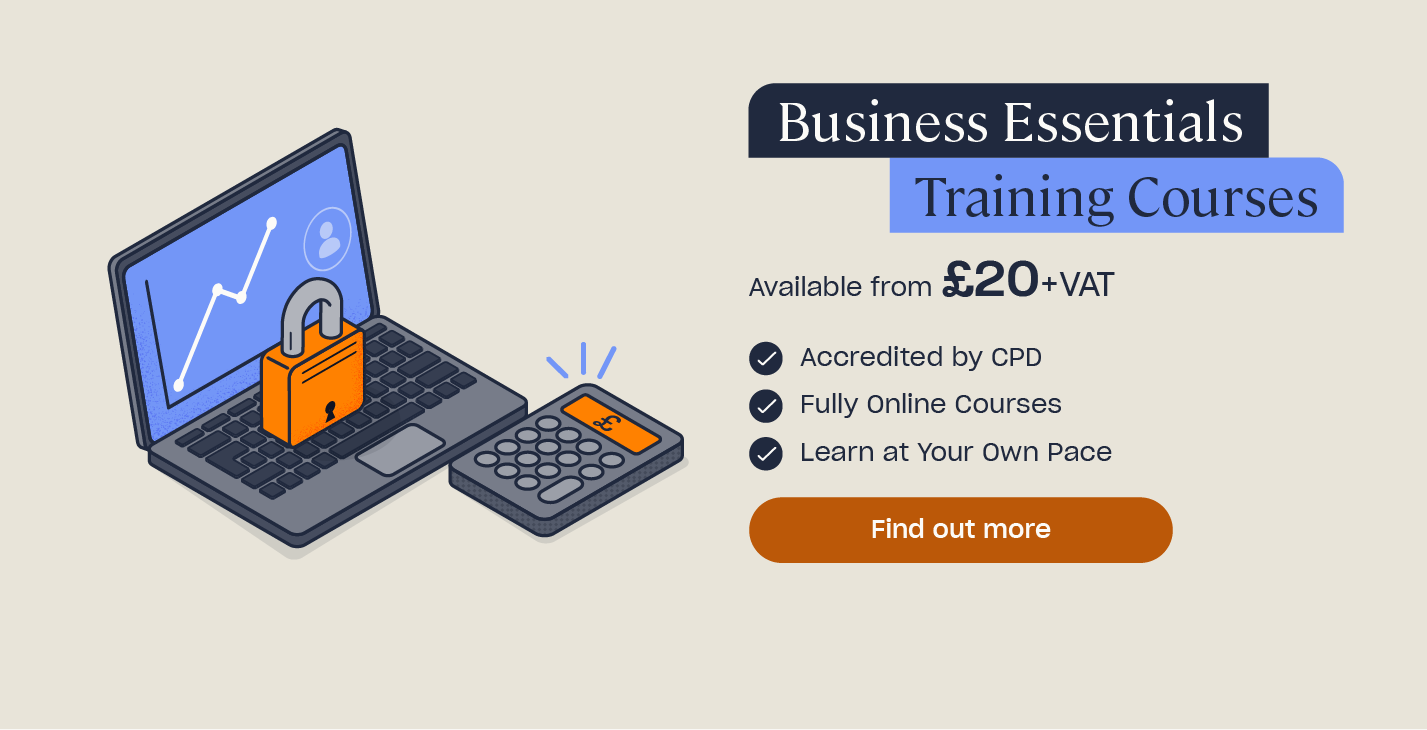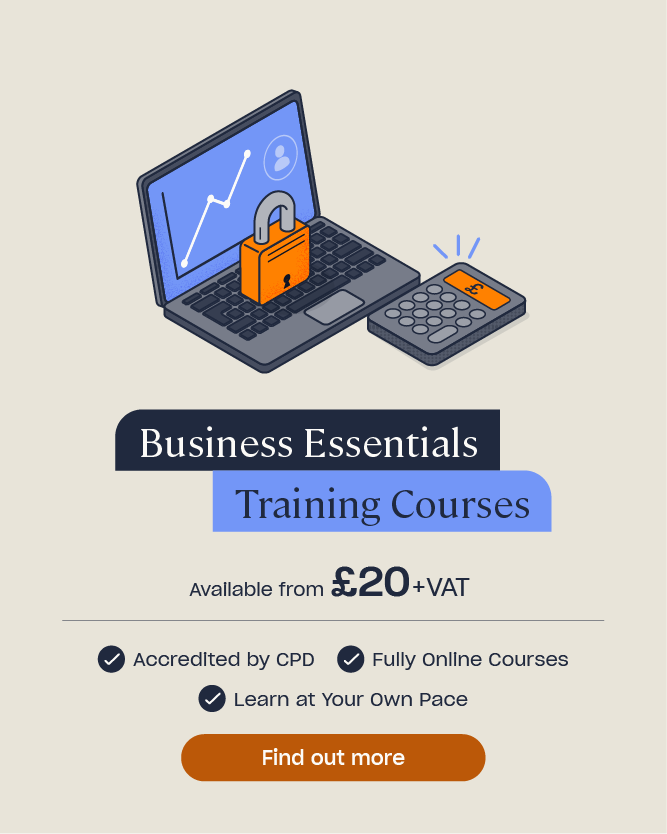What are Personal Development Goals for Work?
Setting clear goals for your personal development at work is key to enhancing your employability prospects, raising your self-confidence, and finding satisfaction in your career. Without these defined goals, it’s too easy to remain focused on your current capabilities without expanding your knowledge or abilities. Growing your skill set is crucial to moving forward in any career, and planning your personal development with actionable steps and deadlines helps you to visualise goals for the future and take measured steps towards accomplishing them.
In this article, we will outline what personal development goals are in more detail, discuss various reasons why they’re important, and provide a list of example goals that you could set yourself in order to effectively accelerate your development at work.
What are Personal Development Goals?
Throughout childhood and adolescence, we’re constantly being guided to learn new things by our carers, mentors, and through the education system, and therefore development occurs quickly and constantly. This becomes harder to maintain in adulthood, however, when we are no longer directed towards new opportunities but must seek them out ourselves. Personal development is a lifelong process, however, and remains just as important in adulthood as it is growing up.
In the workplace, personal development goals are a way to assess your skills, contemplate your aims in life and create a plan to achieve these successfully in order to reach your full potential. They can help you to make positive guided decisions for the future so you have a clear path set out to your own empowerment.

Interested in Learning More?
Our wide range of Online Training Courses can help with your personal development and will help you to advance your career. With a range of over 180 courses, we’re here to help you achieve your goals.
Why is Personal Development Important?
Personal development is important in all aspects of your life, but for employees it can have a myriad of positive effects on your career. As an adult, your work takes up a large portion of your life and, therefore, it’s well worth seeking benefits from your employment beyond simply using it as a means to make money.
Personal development goals can help you plan a fulfilling career path by honing skills in areas of your role that are most enjoyable, so that you can continue to find work that is rewarding for you.
Here are a few reasons why personal development goals are important in helping you get the most out of your work life.
Improve Your Productivity
Developing the skills required to do your role effectively will allow you to complete your core tasks more easily and efficiently, in turn leaving room for you to take on extra responsibility within your working hours. Not only will this make you a great asset to your employer, it will also improve your confidence in your abilities. Additionally, having time to expand your workload may allow you to explore new areas of your role that you have an interest in and that you may want to pursue further in the future, therefore broadening your horizons.
Provide Direction for Your Career
The monotony of daily core tasks within a work environment can easily cause you to fall into a routine in which you lose sight of professional progress. Setting Personal Development Goals for your career is an important step in avoiding this and maintaining purpose and direction. Creating clear objectives provides you with beacons towards which you can direct your activities by prioritising tasks that bring you closer to achieving your goals. Over time, these small accomplishments will lead the way along a successful career path and towards more senior positions that align with your overall purpose.

Define Your Own Success
Whilst the practice of setting Personal Development Goals is often focused around benefits for your future, creating and updating your goals regularly is a great way of assessing how far you’ve already come and helps you to recognise everyday successes which may otherwise go unnoticed. Working towards the accomplishment of measurable goals is paramount to maintaining motivation at work as it ensures you notice and acknowledge small achievements regularly.
Additionally, having milestones that are tailored to your priorities and capacity provides clarity over your own definition of success, rather than following someone else’s idea of success which may not be attainable or relevant to your goals.
Become a Better Interviewee
When interviewing for a new job role, employers want to see that you’re enthusiastic about developing your skills and overcoming new challenges to benefit the business. Being able to display career progression with specific steps you’ve taken to grow your skill set and achieve past personal development goals is extremely desirable to employers and will help to impress an interviewer. Read our article on interview skills to learn more about this along with other ways in which you can prepare to impress a potential employer.
Looking to Learn More?
There are many core skills that are key to succeeding in any business, so these are good starting points to base your personal development goals around. Take a look at our Business Essentials Courses to discover our recommendations.
Personal Development Goals for Work
Your personal development goals should be tailored to you, with targets that are relevant to your role and your aims for the future. There are some goals, however, that will help you grow in any industry or career. Here are some examples of personal development goals that we’d recommend.
Improve Your Time Management
In most careers, you’ll face deadlines and competing tasks that fight for your valuable time. This can feel overwhelming, but knowing how to use your time efficiently will prevent your workload from piling up or creeping over your usual work hours.
Improving your time management skills will ultimately increase your productivity, reduce your stress levels, and allow you to spend more time on things that matter most to you. As a result, this is a personal development goal that will have far reaching positive impacts on your work life.

Try using methods of time-keeping such as scheduling tasks in certain time slots or prioritising your most important tasks at the start of each day to get started. If you’d like more information on how to improve these skills, take a look at our comprehensive Time Management course.
Enhance Professional Relationships
Whilst this goal may seem fairly broad, it encompasses many other important business skills, such as communicating effectively, networking, and being able to manage conflicts.
The interactions you have with the people you work with determines your overall success. Often, business targets are achieved as a team. Therefore, communicating well with your colleagues to get tasks done to a high quality and within time constraints is essential.

Not every member of your team will have the same approaches to work, so disagreements are bound to arise. Knowing how to actively listen to a colleague to understand their ideas is paramount to finding an agreeable compromise and progressing towards an end goal.
Nourishing your professional relationships with these key skills will not only make your work life more enjoyable but will improve the quality and quantity of the work you produce.
Cultivate Resilience
Whilst it’s great to be able to celebrate your professional successes, your work life will inevitably include some rejections, setbacks and obstacles too. Whilst these may cause frustration, having the ability to overcome challenges and withstand adversity is an important skill that will help you recognise and accept the balance of successes and failures within your career and make progress despite challenging circumstances.
Why not take a step towards developing your resilience skills today with our resilience training course, which provides practical advice and tools for improving your perseverance and adaptability to become a more resilient employee.
Learn more about resilience in the workplace in our article: Resilience in the Workplace: What are the Benefits and How Can Businesses Develop It?
Get comfortable with Leadership
For many people, making progress in their career involves climbing the ladder to positions of higher seniority within their company, and this is a great ambitious goal to set for your personal development. In order to reach this ultimate goal, however, you need to be comfortable with leading and managing, and be able to do this effectively.
Senior roles usually involve an element of leadership or management, so it’s wise to show development in your leadership skills in order to achieve a promotion. Perhaps see if you can gain experience of leading a team meeting, proposing new ideas or initiatives, and shadowing others who have a more senior role than you.

Learn a New Skill
When creating your personal development goals, it’s a good idea to form some that are tailored specifically to your role. This ensures that you’re progressing in your current position as well as looking ahead to your future career path.
One good way to do this is to base one goal around learning a new skill that will help you do your work better. This could be anything from learning how to code, improving your Excel abilities, or expanding your knowledge on the latest advised safeguarding practices.
Don’t know where to start? Approach your manager and see if they have any suggestions. The more skills you have in your arsenal, the more productive and efficient you’ll be in your role, and the quicker you’ll progress to new and exciting opportunities at work.
How Can I Improve My Personal Development at Work?
We’ve established that personal development goals are a useful tool in helping to direct your career, boost progression, and give confidence and motivation, but how should you go about creating these goals?
Firstly, it’s a good idea to discuss your personal development with your manager in regular 1-2-1 conversations. Your manager will have a good understanding of what’s needed to progress in your role and, as they’ll have a solid awareness of your current performance, they can suggest things you could work towards to improve. Our article on preparing for a performance review offers advice on how to get the most from these conversations so that you can use your 1-2-1 to develop career goals by identifying areas of potential growth.

In addition to getting advice from your manager on what goals you could set to improve your performance and develop your career, it is often useful to have similar conversations with your colleagues as well. We often think that workplace advice should come from our superiors, but using the 360 degree feedback model, where you receive anonymous comments from your fellow employees, helps to give a fuller, more balanced overview of your performance. The more information you can gather, the easier it will be to create strongly guided goals that are tailored specifically to your development needs.
Once you have gathered a list of appropriate personal development goals for your work, organising these into an easy to follow structure is important to help you monitor your growth and achieve the results you desire. A Personal Development Plan allows you to break down your goals into actionable steps, attribute dates by which you aim to achieve your targets, and visualise your progress. Our guide on how to build a PDP provides instructions on how to create an effective plan, along with a template you can download and use.
Now that you understand the importance of creating personal development goals and how to use them at work to advance your career, we hope you’ll use some of the examples provided in this article to get started. Once you’ve created your personal development goals, don’t forget to regularly monitor and update them in line with your progress!
Further Resources:
- How to Prepare for a Performance Review: Free Template
- A Personal Development Plan (PDP) Guide & Template
- Using a Personal Development Plan in Health and Social Care
- How to Stand Out in a Virtual Interview: Preparation Tips
- 10 Development Areas for Managers
- What is CPD? A Guide to Continuing Professional Development
- Why is Continuous Learning Important?
- Writing A Professional Development Plan – Example & Template
- Soft Skills in the Workplace
- Business Essentials Courses







